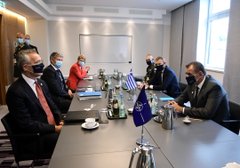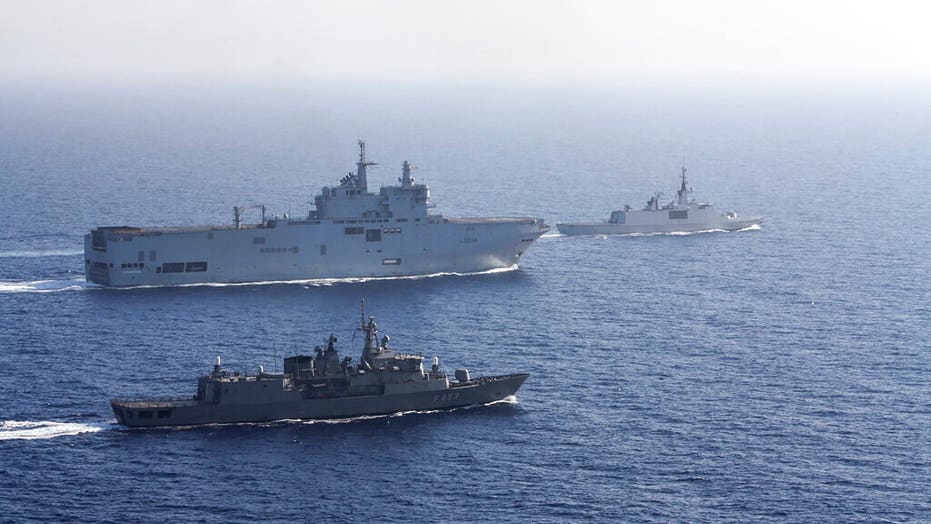
It has been a busy day for Greek Defense Minister Nikos Panagiotopoulos who informed the European Union’s Defense Ministers and NATO’s head about the current situation with Turkey in the East Mediterranean.
“At the Informal Meeting of the EU Defense Ministers, I informed my counterparts extensively, the Secretary General of NATO Jens Stoltenberg and Deputy Secretary General of the UN Jean – Pierre Lacroix, on the developments in the Eastern Mediterranean and the provocative actions by Turkey in an area of the Greek continental shelf,” Greek Defense Minister Nikos Panagiotopoulos said on Twitter.
However, in speaking with Stoltenberg, Panagiotopoulos did not shy away from telling the NATO head that the Alliance’s equal treatment of Greece and Turkey, in spite of the latter’s war mongering and provocations, is not “acceptable.”
“NATO’s policy of equal distances is detrimental to our country, but also to the cohesion of the Alliance, and therefore is not acceptable,” Panagiotopoulos told Stoltenberg.
The Minister of National Defense participated in the Informal Meeting of the Ministers of Defense of the European Union that took place today in Berlin. He briefed his counterparts, as well as NATO Secretary-General Jens Stoltenberg and UN Under-Secretary-General for Peacekeeping Operations Jean-Pierre Lacroix, about the latest developments in the East Mediterranean following provocative actions by Turkey.
During the first Working Session, Panagiotopoulos pointed out the challenges of security and stability in the East Mediterranean from Turkey’s delinquent behavior within the Greek continental shelf. He stressed that Turkey’s general stance and its destabilizing illegal actions in the East Mediterranean constitute a blatant violation of Greece’s sovereign rights and pose the risk of escalating tensions in the region.
The Minister also made it clear to his counterparts that Greece, with absolute respect for international law, consistently faces the current challenge and fully defends its national sovereignty and the external borders of the EU, highlighting the important and difficult task of the Greek Armed Forces. However, he also stressed the European Union’s commitment to maximum vigilance and its role in order to restore the environment of peace, security and stability in the region.
During the discussion on EU co-operation with partners in the operational part of the Common Security and Defense Policy, Panagiotopoulos particularly noted that cooperation with third countries must presuppose that the latter share the principles and values of the Union while acknowledging the consistently positive and constructive EU cooperation.
On the other issues on the agenda, the Minister of National Defense emphasized the support of Greece in processes, such as the strategic compass aimed at developing a strategic culture within the Union, in order for it to be able to take autonomous action where circumstances require it.
During the working dinner that followed, he did not fail to mention the importance of maintaining the resilience of the EU in the face of multiple challenges that lurk in the present period, attaching particular importance to the demonstration of solidarity and readiness.

